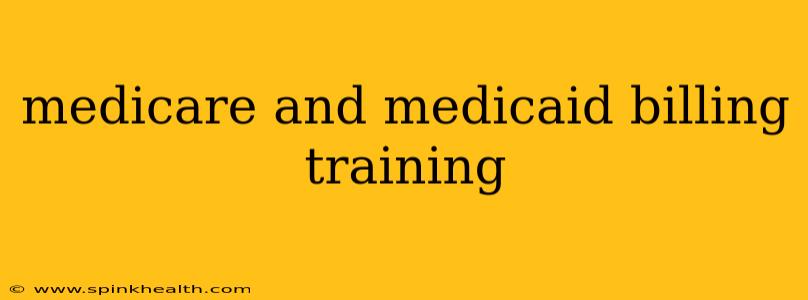The world of healthcare billing can feel like a labyrinth, especially when dealing with the complexities of Medicare and Medicaid. This isn't just about submitting claims; it's about understanding intricate regulations, coding systems, and reimbursement procedures to ensure smooth operations and financial stability for healthcare providers. This journey begins with the right training, and this guide will illuminate the path.
Imagine this: You're a newly graduated nurse practitioner, brimming with enthusiasm to serve your community. You've dedicated years to mastering your clinical skills, but the administrative side—specifically, billing for Medicare and Medicaid—feels like a foreign language. You're not alone. Many healthcare professionals find this aspect challenging, but with the right training, it can become manageable, even rewarding.
What is Medicare and Medicaid Billing Training?
Medicare and Medicaid billing training equips healthcare professionals with the knowledge and skills to accurately code, bill, and receive reimbursements for services rendered to patients covered by these government-sponsored healthcare programs. It's not just about memorizing codes; it's about understanding the underlying principles that govern these systems. This includes learning about the intricacies of:
-
ICD-10 and CPT Coding: These are the languages of healthcare billing. You'll learn to accurately select the codes that reflect the services provided and the diagnoses of your patients. Incorrect coding can lead to rejected claims and significant financial losses.
-
Medicare and Medicaid Regulations: These programs have specific rules and guidelines for billing. Training will help you navigate these regulations and ensure compliance, avoiding potential penalties and audits.
-
Claims Submission and Processing: You'll learn about various methods of submitting claims (electronic vs. paper), how to track claims, and what to do if a claim is denied or rejected. This includes understanding the appeals process.
-
Reimbursement Policies: Understanding how Medicare and Medicaid determine payment amounts for different services is crucial for financial planning and management.
What are the Different Types of Medicare and Medicaid Billing Training?
The options for Medicare and Medicaid billing training are varied, catering to different learning styles and schedules. You can find:
-
Online Courses: These offer flexibility and convenience, allowing you to learn at your own pace. Many online platforms offer comprehensive programs covering all aspects of billing.
-
In-Person Workshops and Seminars: These provide a more interactive learning experience, with opportunities for hands-on practice and networking with other professionals.
-
On-the-Job Training: Some healthcare facilities offer training as part of their employment packages. This allows you to learn while applying your skills in a real-world setting.
-
College or University Courses: Many colleges and universities offer certificates or associate degrees in medical billing and coding. These often include comprehensive coverage of Medicare and Medicaid billing.
How long does Medicare and Medicaid billing training take?
The duration of the training varies depending on the chosen format and depth of coverage. Online courses might take a few weeks, while a college-level program could span several months or a year. Workshops and seminars are usually shorter, intensive sessions.
What are the career opportunities after completing Medicare and Medicaid billing training?
Successful completion of this training opens doors to various roles within the healthcare industry, including:
-
Medical Biller: Responsible for preparing and submitting claims, tracking payments, and handling denials.
-
Medical Coder: Assigns diagnostic and procedural codes to patient records.
-
Healthcare Administrator: Oversees the entire billing process, ensuring accuracy and compliance.
-
Practice Manager: Manages the administrative aspects of a medical practice, including billing.
Is Medicare and Medicaid billing training worth it?
Absolutely! The demand for skilled medical billers and coders is high, and the potential for career advancement is significant. Moreover, a solid understanding of Medicare and Medicaid billing is invaluable for any healthcare professional, ensuring efficient practice management and financial stability.
This journey into the world of Medicare and Medicaid billing may seem daunting initially, but with the right training and dedication, you can navigate this complex system with confidence, ultimately improving patient care and contributing to a healthier, more efficient healthcare system. Remember, the investment in training is an investment in your future and the future of your healthcare practice.

